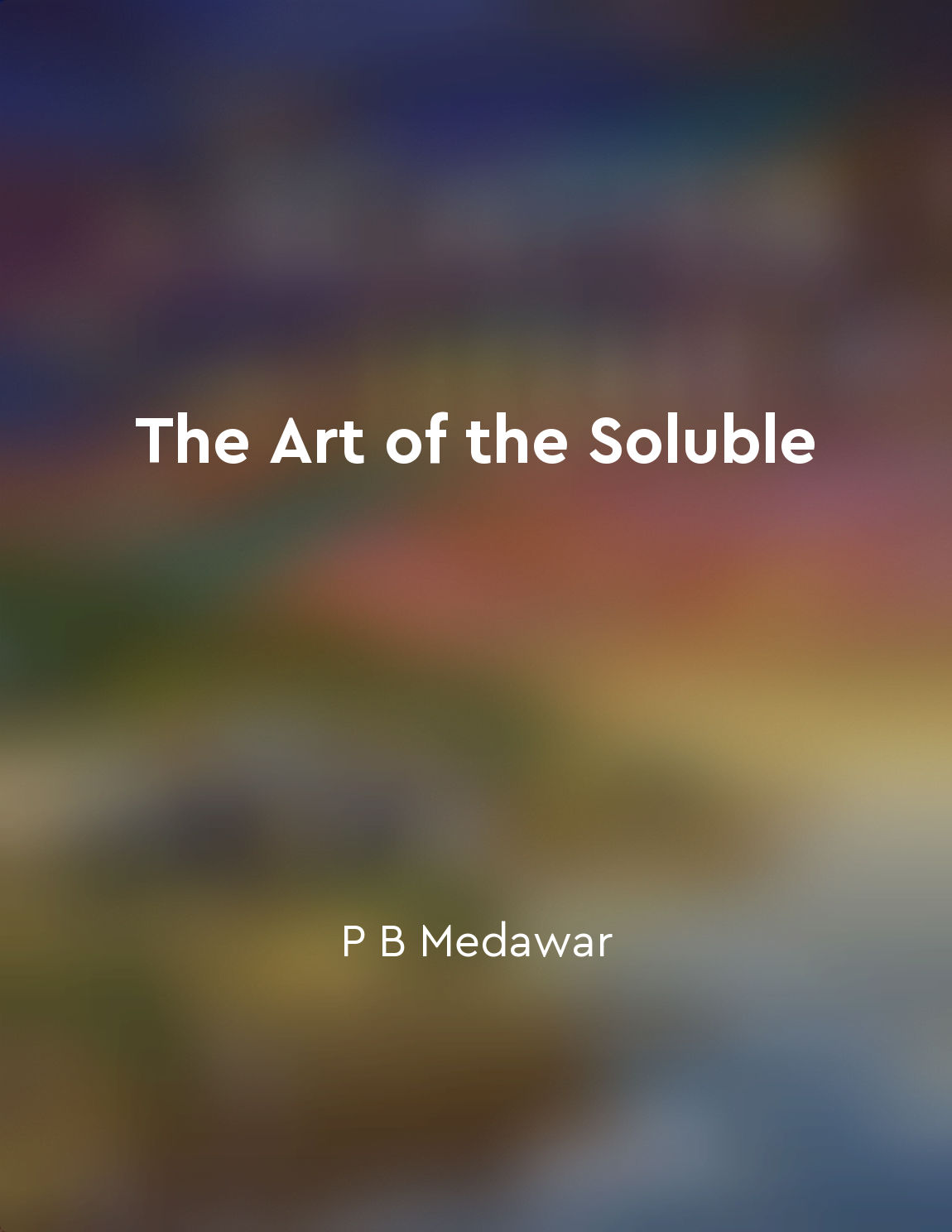Audio available in app
Conjecture and criticism drive progress from "summary" of The Beginning of Infinity by David Deutsch
The driving force behind progress in any field is the relentless pursuit of conjecture and criticism. This process involves putting forward an idea or hypothesis, subjecting it to rigorous scrutiny, and accepting or rejecting it based on the evidence. Conjecture allows us to explore new possibilities and push the boundaries of what is known, while criticism helps us to refine our ideas and eliminate errors. By constantly questioning and challenging existing beliefs, we are able to uncover new information and make breakthroughs that can lead to significant advancements. This process of conjecture and criticism is essential for expanding our knowledge and understanding of the world around us. Without it, we would be stuck in a state of stagnation, unable to move forward or make any real progress. However, it is important to note that not all conjectures are created equal. In order for progress to be made, conjectures must be testable and falsifiable. This means that they must be able to be proven wrong if they are incorrect. By subjecting our ideas to this level of scrutiny, we are able to weed out those that are flawed and focus on those that have the potential to lead to new discoveries. Criticism plays a vital role in this process by helping us to identify and correct errors in our thinking. By inviting others to scrutinize our ideas and point out any flaws or inconsistencies, we are able to strengthen our arguments and refine our thinking. This feedback loop of conjecture and criticism is what drives progress and allows us to continually expand our knowledge and understanding.- The concept of conjecture and criticism driving progress is a fundamental principle that underpins the growth of knowledge and the advancement of civilization. By embracing this process and being open to new ideas and feedback, we are able to break free from the constraints of the status quo and embark on a journey of discovery and innovation.
Similar Posts
The anthropic principle raises the question of whether the universe was finely tuned for the emergence of intelligent life
The anthropic principle is a concept that has puzzled scientists and philosophers for decades. It raises a profound question: w...
Laws of nature
The laws of nature are the rules that govern the way the universe works. They are the principles that determine how things happ...
The kilogram was chosen as the unit of mass
The kilogram was chosen as the unit of mass by an international group of scientists and politicians who gathered in Paris in 17...
Shapin and Schaffer analyze the social dynamics of knowledge production
In the study of the social dynamics of knowledge production, Shapin and Schaffer delve into the intricate relationships between...

Questions about the nature of reality persist in cosmology
The inquiry into the fundamental nature of reality is an enduring theme in the field of cosmology. Scientists and philosophers ...

Clarity is key in scientific communication
The necessity of clarity in scientific communication cannot be overstated. It is the very foundation upon which all scientific ...
Technology has played a crucial role in advancing exploration
Throughout history, the progress of exploration has been closely intertwined with the development of technology. From the earli...
Natural phenomena have scientific explanations
Natural phenomena are the everyday occurrences that we often take for granted. From rainbows to thunderstorms, these events can...
The impact of explanations on progress
The progress of science and technology hinges on our ability to generate and refine explanations. Explanations are not merely a...

The quest for knowledge requires intellectual curiosity and a willingness to challenge assumptions
Intellectual curiosity is the driving force behind the quest for knowledge. It is the desire to explore, to question, and to un...

